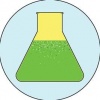Quick Reads
The world's largest chemical, energy, agribusiness and pharma companies are investing in Synthetic Biology
Soumis par ETC Staff le
Corporations investing in Synthetic Biology include 6 of the top 10 Chemical Companies, 6 of the top 10 Energy companies, 6 of the top 10 grain traders and the top 7 pharma companies.
Endorse the Campaign to Ban Terminator
Soumis par ETC Staff le
We invite all civil society organizations and social movements - organizations, communities, and gatherings of Indigenous peoples, farmers, peasants, churches, and all others - to endorse the campaign by signing on to the following statement. (Your group’s name will be used in a list of groups that state opposition to Terminator)
Sign the letter.
Support 'The Principles for the Oversight of Synthetic Biology'
Soumis par ETC Staff le
The Principles for the Oversight of Synthetic Biology is the first global declaration from civil society to outline principles that must be adopted to protect public health and our environment from the risks posed by synthetic biology. The report also addresses the field’s numerous economic, social and ethical challenges. The writing of these principles was a collaborative effort and has been endorsed by 111 organizations from around the world.
New Report: The Greed Revolution
Soumis par ETC Staff le
A new 30-page report that documents the growing influence of agribusiness on the multilateral food system and the lack of transparency in research funding has been released today by the international civil society organization ETC Group. The Greed Revolution: Mega Foundations, Agribusiness Muscle In On Public Goods, presents three case studies – one involving the UN Food and Agriculture Organization (FAO) and two involving CGIAR Centers (Consultative Group on International Agricultural Research) -- which point to a dangerous trend that will worsen rather than solve the problem of global hunger. The report details, amongst others, the involvement of Nestlé, Heineken, Monsanto, the Bill & Melinda Gates Foundation and Syngenta Foundation.
World’s Top 10 Chemical Companies
Soumis par ETC Staff le
The world’s 50 largest chemical corporations control a global market valued at $697 billion in 2009. The top 10 chemical firms account for about 40% of the market. “Petrochemicals,” by definition, are derived from petroleum and other fossil fuels. With soaring costs, unpredictable supplies and more challenging extractions, the industry is already making a transition from petrochemicals to biomass feedstocks. (In 2010, the world’s top 50 chemical corporations rebounded with combined sales of approximately $850 billion, an increase of 25.3% over 2009.)
World’s Top 10 Energy Companies
Soumis par ETC Staff le
ndustry statistics on world energy consumption put the “Green Economy” in much-needed perspective: In 2010 the world’s energy consumption grew by 5.6% - faster than any year since 1973.31 Fossil fuels accounted for 88% of the world’s primary energy (oil 34%; coal 30%; gas 24%). Nuclear, hydroelectric and “renewables” account for the remaining 12%. Non-hydro “renewables” (wind, geothermal, solar, biomass and waste) – including biofuels – account for 1.8% global energy consumption. World biofuels production grew by 14% in 2010 – but accounted for just one-half of one percent of global primary energy consumption. The world's top 10 energy companies account for 25% of the estimated $7 trillion energy market. Many of the world’s largest energy enterprises are high-profile investors in synthetic biology. Not only do they seek a cleaner, greener image; they believe that future profits will depend on diversifying and controlling bio-based feedstocks for energy production.
Back to the Future?
Soumis par ETC Staff le
Even as new industrial platforms involving petrochemicals and electricity were gaining ground in the late nineteenth century, the newly formed United States Department of Agriculture (USDA) unveiled its official seal showing a plow with sheaves of maize depicted on the surface of a shield. Below the shield, an unfurled scroll bears the claim: AGRICULTURE IS THE FOUNDATION OF MANUFACTURE AND COMMERCE.
As the 20th century evolved, petrochemicals and their associated technologies displaced agriculture as the economy’s foundation, but the 21st century may see a return of agriculture’s primacy. The vision is of a transformed and transformative agriculture, however, where both input (i.e., feedstock and feedstock processing) and output are tailor-made for particular industrial uses. Commodity crops may no longer be identified in the traditional way; in the future, they’ll be engineered, proprietary products custom-designed to meet the needs of industrial biomass processors – whether for food, energy, materials or pharmaceuticals.
World's 10 Largest Water Companies
Soumis par ETC Staff le
|
Company
(Headquarters)
|
|---|
¿De regreso al futuro?
Soumis par ETC Staff le
A pesar de que nuevas plataformas industriales (que incluían, por ejemplo, a la petroquímica y a la generación de electricidad) ganaban terreno a finales del siglo XIX, el entonces recién creado Departamento de Agricultura de Estados Unidos (USDA) develó su sello oficial, el cual ilustraba un arado frente a un hato de plantas de maíz, dibujados en un escudo. Bajo el escudo, un pergamino desenrollado contiene el lema: LA AGRICULTURA ES LA BASE DE LA MANUFACTURA Y EL COMERCIO. A medida que se desarrolló el siglo XX, las sustancias petroquímicas y sus tecnologías asociadas desplazaron a la agricultura como base de la economía, pero en el siglo XXI podríamos presenciar el retorno de la preeminencia de la agricultura. No obstante, la visión actual es la de una agricultura transformada y transformadora, en la que tanto los insumos (por ejemplo, las materias primas y su procesamiento) como los productos son prediseñados para usos industriales específicos. Los cultivos comerciales pueden ya no ser identificados de manera tradicional; en el futuro, serán productos patentados y diseñados a la medida por medio de ingeniería para cubrir las necesidades de los procesadores industriales de la biomasa, sea para alimentos, energía, materiales o fármacos.





